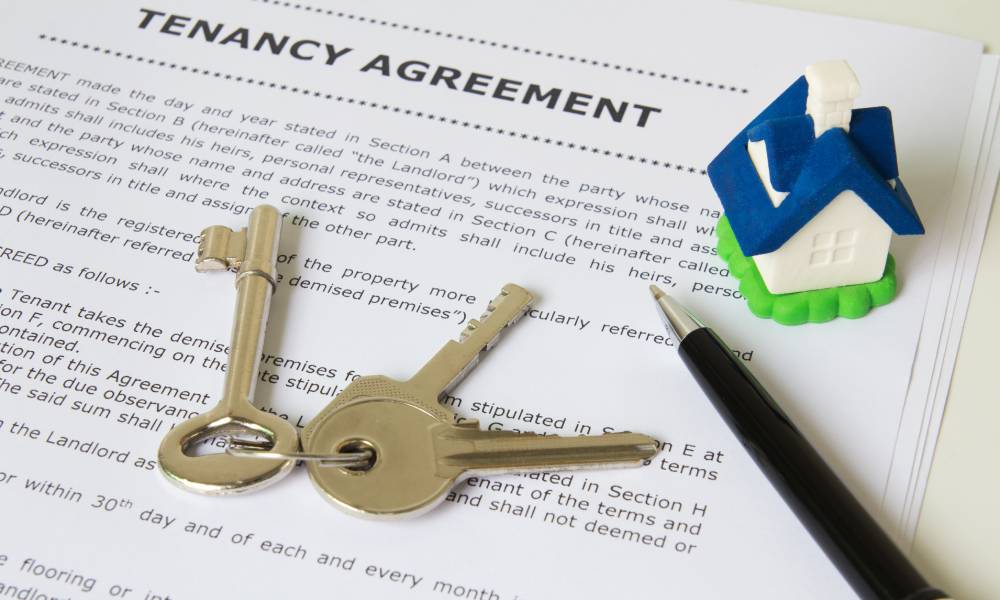Owning a rental property can be a great source of passive income, but for many landlords, the stress of managing tenants, maintenance, and paperwork can quickly become overwhelming. Fortunately, with the right approach and strategies, managing your rental property can become a smooth and stress-free experience. In this article, we’ll explore practical tips to help you manage a rental property efficiently and reduce the hassle.
1. Hire a Professional Property Management Company
One of the easiest ways to manage a rental property without stress is to outsource the work to a professional property management company. A good property manager will take care of day-to-day tasks such as:
- Finding and screening tenants: Ensuring you have reliable renters who will pay on time and respect the property.
- Handling maintenance requests: Responding to tenant concerns and coordinating repairs.
- Collecting rent: Managing rent collection and dealing with any late payments or disputes.
- Legal compliance: Staying updated on local rental laws and regulations.
While property management companies charge a fee (usually a percentage of the monthly rent), the peace of mind they offer can be worth every penny. You’ll be able to enjoy the income from your rental property without having to handle every minor issue yourself.

2. Automate Rent Collection
One of the most time-consuming aspects of property management is rent collection. By automating this process, you can eliminate late payments and the need for constant follow-up. Online payment platforms make it easy for tenants to pay their rent electronically, which ensures:
- Timely payments: Tenants can set up automatic payments, reducing the risk of late fees or missed payments.
- Less manual work: No need to manually track payments or deal with checks.
- Clear records: Payment platforms provide a digital trail, making it easier to keep financial records organized.
Popular platforms like PayPal, Venmo, or specialized rent collection apps like RentRedi and Cozy make managing payments seamless.
3. Set Clear Expectations with Tenants
Stress often arises when there is a miscommunication between landlords and tenants. By setting clear expectations from the beginning, you can avoid misunderstandings. Here’s how:
- Detailed lease agreements: Ensure the lease outlines everything from payment schedules to maintenance responsibilities and penalties for violations.
- Move-in and move-out checklists: These documents ensure both parties are aware of the condition of the property and can help avoid disputes about damages.
- Communication guidelines: Set up clear channels of communication, whether by phone, email, or a property management app, so tenants know how to reach you in case of emergencies or issues.
Establishing these guidelines from the start will foster a professional relationship and minimize unnecessary stress.

4. Stay on Top of Maintenance
One of the biggest headaches for landlords is dealing with unexpected maintenance issues. However, by adopting a proactive approach, you can prevent small problems from turning into major repairs. Consider these tips:
- Schedule regular inspections: Conduct property inspections every few months to identify issues like leaks, pests, or appliance malfunctions before they escalate.
- Create a maintenance checklist: Have a seasonal maintenance checklist to ensure tasks like gutter cleaning, HVAC servicing, and plumbing checks are regularly completed.
- Build a trusted network of contractors: Having reliable plumbers, electricians, and handymen on call will save time when an issue arises.
By keeping the property well-maintained, you not only keep tenants happy but also avoid costly repairs down the line.
5. Use Property Management Software
Technology is a landlord’s best friend when it comes to streamlining the management process. Property management software can help you handle every aspect of running your rental property efficiently. Some of the best platforms include:
- Buildium: Allows landlords to manage everything from tenant applications to rent payments and maintenance requests in one place.
- AppFolio: Offers features like online rent collection, maintenance tracking, and financial reporting.
- TenantCloud: Provides free tools for landlords, including online payments, maintenance tracking, and lease management.
By leveraging property management software, you can significantly reduce the amount of time spent on administrative tasks and keep everything organized in one digital location.

6. Understand Local Rental Laws
Legal issues can be a major source of stress for landlords, especially if they’re unfamiliar with local rental laws. To avoid fines, disputes, or potential lawsuits, it’s essential to:
- Know tenant rights: Ensure you understand tenant rights regarding eviction, security deposits, and rent increases.
- Stay up to date on regulations: Laws around rental properties can change, especially when it comes to health and safety standards or zoning laws.
- Use legal resources: If necessary, consult with a real estate attorney to make sure you’re in compliance with local and state laws.
Having a clear understanding of the legal landscape will prevent costly mistakes and help you manage your rental property confidently.
7. Consider Short-Term Rentals
If traditional long-term renting feels too stressful, consider the alternative of short-term rentals. Platforms like Airbnb and Vrbo allow property owners to rent their properties on a short-term basis, which can:
- Provide more flexibility: You can rent out the property for specific time frames and block off dates when you don’t want to host guests.
- Maximize income potential: In popular tourist destinations, short-term rentals can generate more income than long-term leases.
- Simplify tenant management: Short-term rental platforms handle much of the communication and booking process for you.
While managing a short-term rental comes with its own set of challenges, such as frequent cleaning and guest turnover, the flexibility and potential income can make it a worthwhile option for landlords looking for more control.

Managing a rental property doesn’t have to be stressful. By hiring a property management company, automating rent collection, staying proactive with maintenance, and leveraging the right tools, you can create a seamless experience for both you and your tenants. Taking these steps will not only reduce the day-to-day stress of being a landlord but also help you maximize your property’s potential as a lucrative investment.
By following these practical tips, you can confidently manage your rental property and enjoy the benefits of rental income without the headaches.


